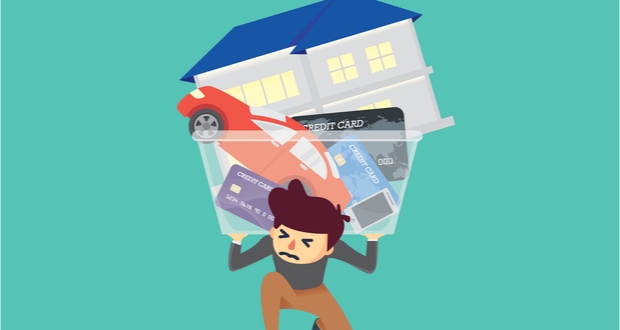 Personal debt can sometimes spiral out of control, causing stress and worry. It is crucial for individuals, including high school students, to address their debt problems promptly and develop effective strategies to regain financial stability. By utilizing a proactive approach that combines Canadian debt consolidation programs, budgeting, reducing expenses, seeking professional help, and prioritizing debt repayment, Canadians can tackle their personal debt and pave the way towards a healthier financial future.
Personal debt can sometimes spiral out of control, causing stress and worry. It is crucial for individuals, including high school students, to address their debt problems promptly and develop effective strategies to regain financial stability. By utilizing a proactive approach that combines Canadian debt consolidation programs, budgeting, reducing expenses, seeking professional help, and prioritizing debt repayment, Canadians can tackle their personal debt and pave the way towards a healthier financial future.
Understanding the Debt Situation
The first step in solving out of control personal debt is to gain a clear understanding of the situation. Calculate the total amount owed, including credit card debt, student loans, or any other outstanding loans. Identifying the exact amount allows individuals to create a realistic plan to pay off their debts.
Creating a Budget
Developing a budget is an essential tool for managing personal finances. Make a list of all income sources and categorize monthly expenses. A budget can highlight unnecessary expenses and reveal areas where spending can be reduced, enabling individuals to allocate more funds towards debt repayment.
Cutting Expenses
Reducing unnecessary expenses is a key strategy in rebuilding finances. Consider eliminating non-essential items such as eating out, movie subscriptions, or impulse purchases. Saving even a small amount each month can make a significant impact on repaying debts in the long run.
Negotiating with Creditors
If the debt burden becomes overwhelming, it is worth contacting creditors to negotiate repayment terms. Discussing the possibility of lower interest rates, reduced monthly payments, or extended payment periods can make debt repayment more manageable.
Seeking Professional Help
In cases where personal debt is extensive and unmanageable, seeking professional help can be a wise decision. Canadian credit counselling agencies or financial advisors can provide guidance on debt management strategies. They may also help consolidate multiple debts, making repayment more straightforward.
Prioritizing Debt Repayment
Once the budget is created, it becomes essential to prioritize debt repayment. Start by paying off high-interest debts first, as they can accumulate rapidly. Focus on making minimum payments on all debts while allocating extra funds to the debt with the highest interest rate to accelerate the repayment process.
Consider Debt Consolidation
For individuals with multiple debts, consolidating debts into a single loan with a lower interest rate can alleviate some of the burden. Consolidation simplifies the repayment process and allows for potential savings in interest payments.
Avoid the Temptation of Credit Cards
High school students should exercise caution with credit cards to prevent exacerbating their personal debt. Avoid using credit cards for unnecessary purchases and aim to pay off the full balance each month.
Set Realistic Savings Goals
Saving money alongside debt repayment is crucial for building a secure financial future. Set realistic savings goals and aim to allocate a portion of each paycheck towards an emergency fund or future expenses. This habit prevents individuals from falling back into debt during unforeseen circumstances.
Staying Focused and Motivated
Getting out of debt involves persistence and discipline. Celebrate small victories along the way and remind yourself of the long-term financial goals that motivated you to tackle your personal debt. Staying focused will help you stay on track and achieve financial freedom.
Addressing out of control personal debt requires dedication and smart financial choices. By creating a budget, reducing expenses, seeking professional help when necessary, and staying committed to repayment strategies, Canadians can regain control over their finances and pave the way for a brighter financial future. Remember, consistency and determination are the keys to success.

